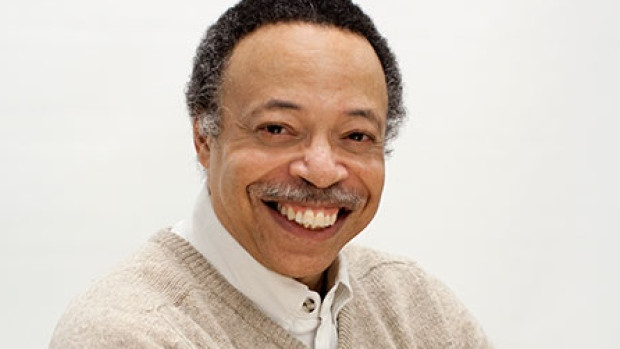Putting the Poe in Politics
Poet Laureate George Eliott Clarke to Perform in Atwater
“Poetry is powerful because it is the succinct fusion of ideas and emotions, …so that the heart takes command of lungs, lips, teeth, and tongue, to speak through ears to the hearts and minds of the audience. Even in ink or pixel form, directed to readers’ eyes, nothing—NOTHING—is more powerful.”
So says George Elliott Clarke, the newly appointed Poet Laureate of Canada.
It’s hard to take anything a poet says at face value, but Clarke isn’t being figurative. He is Canada’s seventh poet laureate since the position was created in 2002, and he believes poetry has every right to worm its way into politics.
“Poetry is a branch of Rhetoric,” he says. “So, good and persuasive political speech may very well verge on the poetic.”
The responsibilities of the national poet laureate include writing poems to be read in the Canadian parliament, advising the parliamentary librarian, and staying at the artistic beck-and-call of the Speakers of the Senate and House of Commons.
There is also a lot of travel involved, which is why Mr. Elliott Clarke will be in Montreal this week. He will read at the Atwater library on Jan. 28, at 7 p.m., as part of their winter poetry season. The reading is free of charge and open to all.
Though Clarke is excited to take up the political pen and praise the country’s geography and people, his poetic history isn’t all powdered wigs and moose similes. The University of Toronto professor also has a background in what The Globe and Mail calls, “Blushingly bawdy soft-porn erotica.”
When mentioning this, Clarke is entertained.
“Apparently, The Globe and Mail could consider the Song of Solomon to be ‘soft-porn,’” he remarks. “As for folks being scandalized by it, I’m guessing it could only be so for those who’ve never been to Montreal.” (Smile.)
Clarke grew up in Nova Scotia, and discovered a love of poetry from a young age. He has spent his career highlighting the stories of African-Canadians in The Maritimes and throughout the country, emphasizing the Canadian history of racism, segregation, discrimination, and forced relocation. His warranted criticism of the country’s past is accompanied by a nuanced view of such political figures as Pierre Elliot Trudeau, who was the subject of one of his plays.
Aside from Bawdy Soft-Porn Erotica and political theatre, the poet’s past work includes screen plays as well as 25 books of poetry, fiction, essays, and anthologies. He has won numerous awards, including a Governor General’s award for poetry in 2002. Now the expectations are high, and the literary hopes of a nation rest on his shoulders.
But Clarke has modest dreams for his two-year term.
“Success would be parliamentarians and the people re-appreciating poetry as a salient form of public speech—that lifts sometimes grubby politics and its squabbles into an inspirational and aspirational register, where civic debates begin to attain classical and even divine dimensions,” he said.
I for one can’t wait for the poetic gavel to fall. Metaphorically, of course.
Canada’s Parliamentary Poet Laureate performs at Atwater Library Jan. 28



__600_375_90_s_c1.jpg)
_1_600_375_90_s_c1.jpg)
__600_375_90_s_c1.jpg)